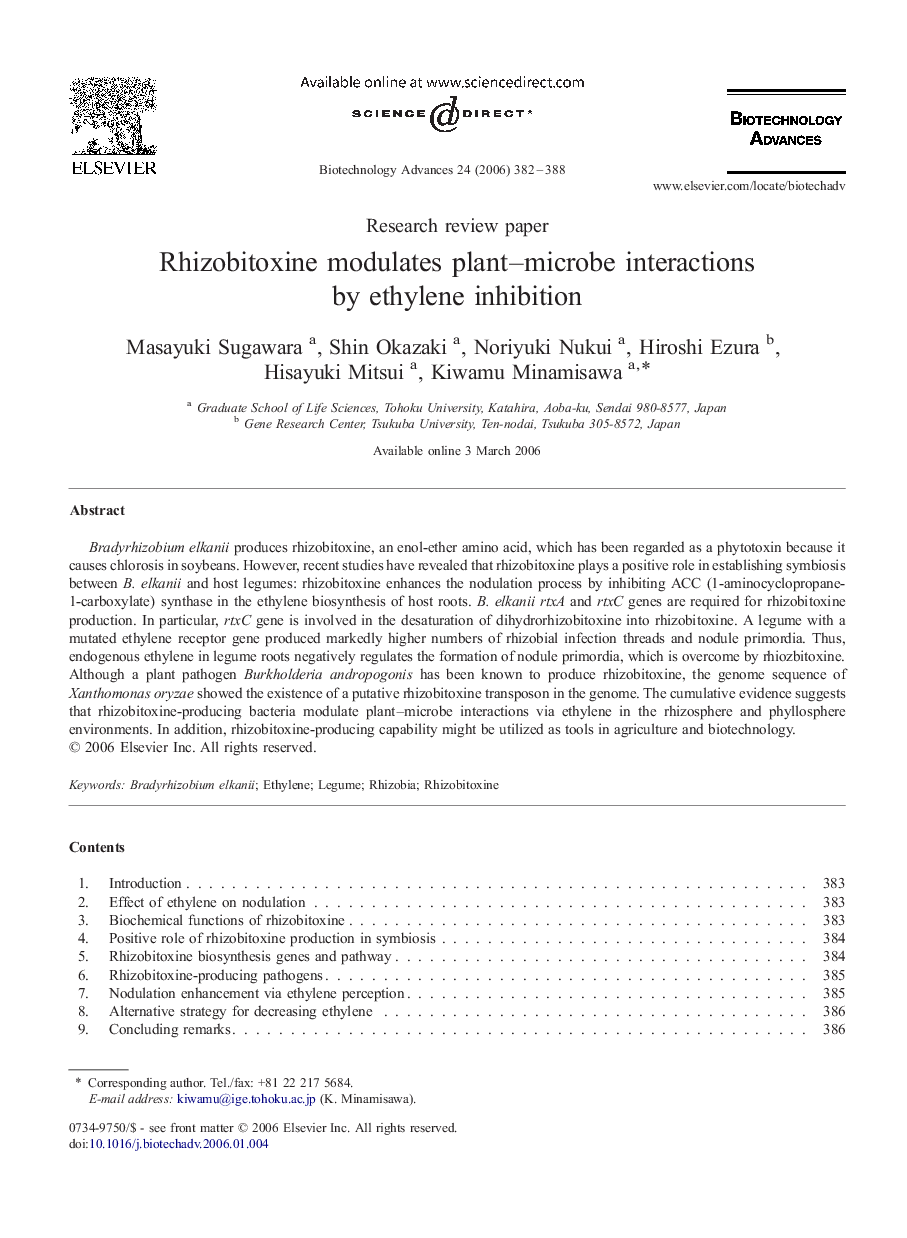| کد مقاله | کد نشریه | سال انتشار | مقاله انگلیسی | نسخه تمام متن |
|---|---|---|---|---|
| 14865 | 1275 | 2006 | 7 صفحه PDF | دانلود رایگان |

Bradyrhizobium elkanii produces rhizobitoxine, an enol-ether amino acid, which has been regarded as a phytotoxin because it causes chlorosis in soybeans. However, recent studies have revealed that rhizobitoxine plays a positive role in establishing symbiosis between B. elkanii and host legumes: rhizobitoxine enhances the nodulation process by inhibiting ACC (1-aminocyclopropane-1-carboxylate) synthase in the ethylene biosynthesis of host roots. B. elkanii rtxA and rtxC genes are required for rhizobitoxine production. In particular, rtxC gene is involved in the desaturation of dihydrorhizobitoxine into rhizobitoxine. A legume with a mutated ethylene receptor gene produced markedly higher numbers of rhizobial infection threads and nodule primordia. Thus, endogenous ethylene in legume roots negatively regulates the formation of nodule primordia, which is overcome by rhiozbitoxine. Although a plant pathogen Burkholderia andropogonis has been known to produce rhizobitoxine, the genome sequence of Xanthomonas oryzae showed the existence of a putative rhizobitoxine transposon in the genome. The cumulative evidence suggests that rhizobitoxine-producing bacteria modulate plant–microbe interactions via ethylene in the rhizosphere and phyllosphere environments. In addition, rhizobitoxine-producing capability might be utilized as tools in agriculture and biotechnology.
Journal: Biotechnology Advances - Volume 24, Issue 4, July–August 2006, Pages 382–388